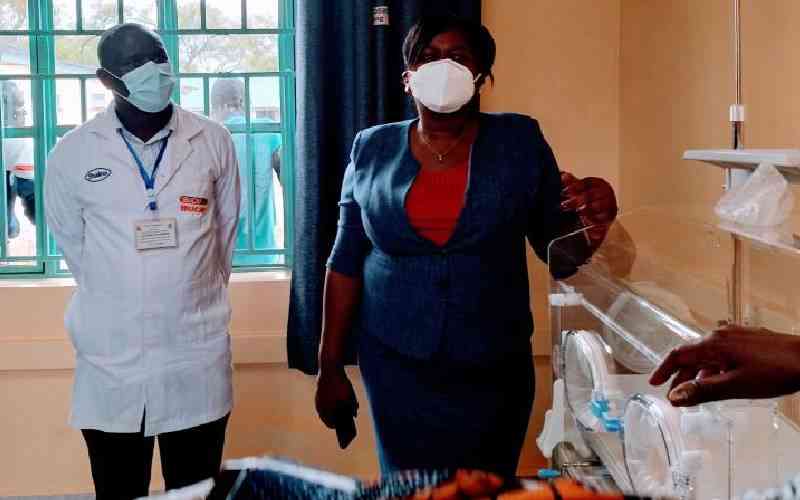×
The Standard e-Paper
Join Thousands Daily

At Okok Education Centre in Homa Bay County, students - both boys and girls - gathered to mark International Menstruation Day which was graced by Sarah Malit, Homa Bay County Executive for Gender and Sports.
Microphone in hand, Ms Malit called out for girls who were on their menstrual periods to come forth. Immediately, five girls stepped forward.